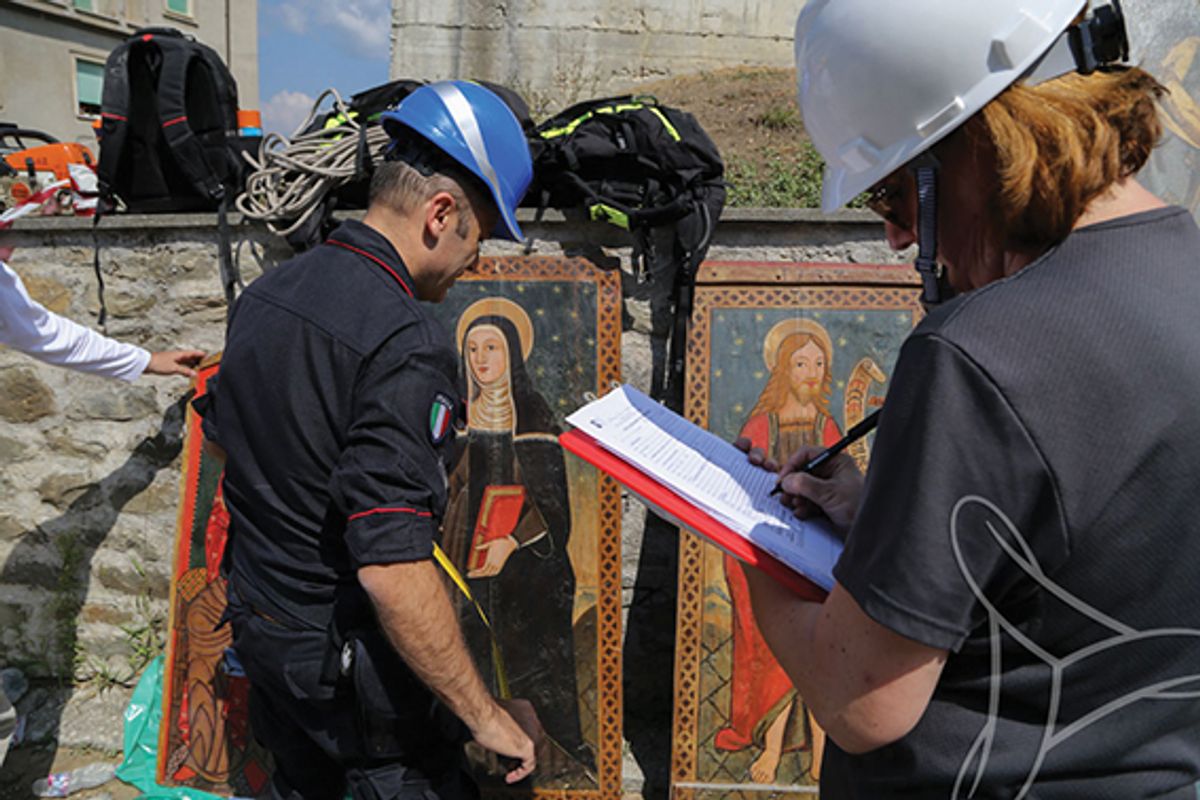Italy has signed a decree enabling its world-leading heritage protection taskforce to operate overseas on direct request from Unesco. Meanwhile, the country’s culture minister Dario Franceschini has renewed calls for the UN agency to establish its own roving unit and announced a range of measures for protecting Ukrainian heritage.
“Italy is an international point of reference for protecting and safeguarding cultural heritage and our expertise is revered all over the world,” Franceschini said in a statement. “Now [the task force] can operate in Italy and abroad to protect cultural heritage from natural disasters, wars and terrorist attacks, and to fight the illicit trade of art.”
Franceschini signed the decree on the eve of the Council of Europe Conference of Ministers of Culture in Strasbourg on 1 April, which he chaired and which was attended by international counterparts, including Ukraine’s Oleksandr Tkachenko via video link. The accord formalises an agreement made in July that allowed Unesco to request the task force’s aid—a power that was hitherto reserved to individual Unesco member states.
Dubbed the “Blue Helmets of Culture” because of their distinctive headgear, the taskforce was founded in 2016 following a memorandum of understanding between Italy and Unesco. The idea was born from Unesco’s Unite4Heritage campaign, launched the previous year to stimulate international efforts to prevent the destruction of heritage by extremist organisations such as Isis.
The first heritage taskforce of its kind, the Blue Helmets includes officers from the Comando Carabinieri per la Tutela del Patrimonio Culturale (TPC), Italy’s specialist police force for art crime, and experts from the culture ministry, including art historians, restorers and scholars. Its main tasks include assessing damage to heritage, planning conservation, and preventing looting and trafficking after terrorist attacks or natural disasters, as well as training other forces around the world.
Earthquakes, floods and explosions
The Blue Helmets were mobilised following earthquakes in Italy in 2016 and 2017, and in Venice after the devastating floods of 2019. They have trained more than 1,000 Iraqi cultural heritage experts, saved historic buildings following the 2020 explosion at the Port of Beirut, and aided Mexico’s cultural protection squad during natural disasters. On 6 April, Franceschini announced that the Carabinieri TPC is remotely supporting Ukrainian experts as they log heritage in Italy’s dedicated databases. Italian state organisations are monitoring sites in the war-torn country, he added. The Blue Helmets could be deployed in Ukraine after the war, a ministry spokesman says. “While bombs are falling, we will not physically enter Ukraine… [but] afterwards, we could certainly be there.”
Franceschini also reiterated his calls for international organisations to launch their own taskforces. “It is vital that the EU or the UN adopt an instrument of this kind, as [the UN has] done to protect lives [in peacekeeping missions],” he said. “Individual countries must not be forced to act alone.”


